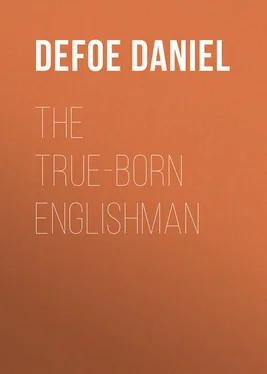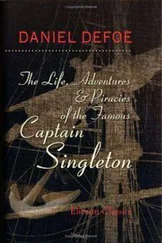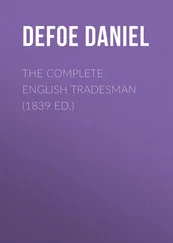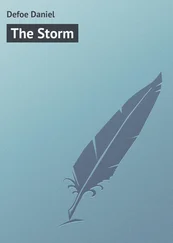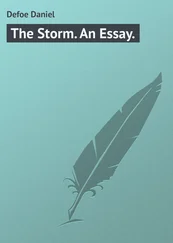Daniel Defoe - The True-Born Englishman
Здесь есть возможность читать онлайн «Daniel Defoe - The True-Born Englishman» — ознакомительный отрывок электронной книги совершенно бесплатно, а после прочтения отрывка купить полную версию. В некоторых случаях можно слушать аудио, скачать через торрент в формате fb2 и присутствует краткое содержание. Жанр: foreign_antique, foreign_prose, на английском языке. Описание произведения, (предисловие) а так же отзывы посетителей доступны на портале библиотеки ЛибКат.
- Название:The True-Born Englishman
- Автор:
- Жанр:
- Год:неизвестен
- ISBN:нет данных
- Рейтинг книги:4 / 5. Голосов: 1
-
Избранное:Добавить в избранное
- Отзывы:
-
Ваша оценка:
- 80
- 1
- 2
- 3
- 4
- 5
The True-Born Englishman: краткое содержание, описание и аннотация
Предлагаем к чтению аннотацию, описание, краткое содержание или предисловие (зависит от того, что написал сам автор книги «The True-Born Englishman»). Если вы не нашли необходимую информацию о книге — напишите в комментариях, мы постараемся отыскать её.
The True-Born Englishman — читать онлайн ознакомительный отрывок
Ниже представлен текст книги, разбитый по страницам. Система сохранения места последней прочитанной страницы, позволяет с удобством читать онлайн бесплатно книгу «The True-Born Englishman», без необходимости каждый раз заново искать на чём Вы остановились. Поставьте закладку, и сможете в любой момент перейти на страницу, на которой закончили чтение.
Интервал:
Закладка:
When the hoop was ready and fitted to his head he found the banana leaves could not be used. Their veins ran straight out from the midrib. This made them easily torn, and besides, they were too large. They were not the best shape. He saw that leaves about a foot long with broad and tapering points would be best. He saw too, that if the leaves had their veins running parallel with the midrib they would be stronger. He made search and at length found leaves that seemed made for his purpose. They were thick and leathery and tapered from base to apex like a triangle.
He now proceeded with his hat-making. He would take a leaf and lay it on the ground with the base toward him. Then he laid the hoop on the base of the leaf, wrapped it around the hoop and fastened it with thorns. He did the same with the other leaves. The thorns were his pins. At last he pinned the tips of the leaves together at the top and the hat was ready. It looked just like a big cone, but it kept out the heat of the sun.
Robinson now had corn and bananas and when he was thirsty he drank a handful of water from the spring. He had been now nine days on the island. Every day he looked out on the sea until his eyes ached to see if he might discover a ship.
He could not understand why no ship came his way. "Who knows how long I must wait here?" said he sorrowfully. Then the thought came to him:
"You will not be able to keep track of the days unless you write it down."
XI
ROBINSON'S CALENDAR
The matter of keeping track of time puzzled Robinson very much. It was getting more difficult every day to keep it in his memory. He must write down the days as they slip by, but where and how? He had neither pen, ink, nor paper. Should he mark every day with a colored stone on the smooth side of the huge rock wall within whose clefts he had dug out his cave? But the rain would wash off the record and then he would lose all his bearings. Then he thought of the beach, but there the wind and waves would soon also erase it.
He thought a long time. "I must find something," he said to himself on which to keep a record. "I must also know when Sunday is. I must rest one day in the week. Yes, I must find something," he said, "on which to write." And finally he found it. He chose two trees standing near each other and then sought for a small sharp stone, which he could make still sharper by striking it on another. When he had got this pen ready he cut into the bark of one tree:
Shipwreck, Sunday, 10th of September, 1875.
He made seven cuts in a row for the seven days in the week. The first cut was longer than the others. This was to represent the Sunday. At sundown every day he made a new cut in the bark.
The other tree he called the month tree. On its stem he was to cut a mark every time his week tree told him a month had passed. But he must be careful, for the months were not of equal length. But he remembered that his teacher had once said in school that the months could be counted on the knuckles and hollows of the hand, in such a way that the long and short months could be found easily and he could tell in this way the number of days in each.
Robinson worked at enlarging his shelter a little every day. He was sorely at loss to find something in which to carry the dirt away from the entrance, or enough so that it would not choke up the opening. A large clam shell was all he could think of at present. He would carry the dirt to the entrance and some distance away, and then throw it. Fortunately the ground sloped away rapidly, so that he needed a kind of platform before his door.
He was careful to open the cleft at some distance above the large opening. For the air was damp and impure in the shelter. But with the opening made high above, fresh air was constantly passing into, and impure air out of, his cave. Light, too, was admitted in this way.
XII
ROBINSON MAKES A HUNTING BAG
Several days passed with Robinson's hat-making and his calendar-making and his watching the sea. Every day his corn and bananas became more distasteful to him. And he planned a longer journey about the island to see if something new to eat could be found.
But he considered that if he went a distance from his cave and found something it would really be of little use to him. "I could eat my fill," he said, "but that is all. And by the time I get back to my cave I will again be hungry. I must find something in which I can gather and carry food." He found nothing.
"The people in New York," he said, "have baskets, or pockets, or bags made of coarse cloth. Of them all, I could most easily make the net, perhaps, of vines. But the little things would fall out of the net. I will see whether I can make a net of small meshes."
But he soon saw that the vines did not give a smooth surface. He thought for a long while. In his garden at home his father had sometimes bound up the young trees with the soft inner bark of others. He wondered if he could use this. He stripped away the outer bark from the tree, which before had yielded him a fibre for his hat, and pulled off the long, smooth pieces of the inner bark. He twisted them together. Then he thought how he could weave the strands together. He looked at his shirt. A piece was torn off and unravelled. He could see the threads go up and down. He saw that some threads go from left to right (woof), others lengthwise (the warp).
From his study of the woven cloth, Robinson saw he must have a firmer thread than the strips of bark gave alone. He separated his bark into long, thin strips. These he twisted into strands or yarn by rolling between his hands, or on a smooth surface. As he twisted it he wound it on a stick. It was slow, hard work. Of all his work, the making of yarn or thread gave him the most trouble. He learned to twist it by knotting the thread around the spindle or bobbin on which he wound it and twirling this in the air. He remembered sadly the old spinning wheel we had seen at his grandmother's house.
His next care was something to hold the threads while he wove them in and out. He had never seen a loom.
After long study Robinson set two posts in the ground and these he bound with seventy-two strands horizontally under each other. Then he tied in the top at the left another thread and wove it in and out through the seventy-two threads. So he tied seventy-two vertical strands and wove them in and out. Thus he had a net three times as long as his foot and as wide as long. He tied the four corners together. He made a woven handle for it and put it on his shoulder like a sack, saying gleefully, "This shall be my hunting bag."
XIII
ROBINSON EXPLORES THE ISLAND
After Robinson made his hunting bag he was anxious to set off on his journey of exploring the island. So he arose very early next morning. "Before it is hot," thought he, "I will be quite a distance on my journey." He ate a couple of bananas, scooped up a few handfuls of water from the spring, stuck a few ears of corn in his hunting bag, took his stick in his hand and went forth. As he left his cave the thought struck him: "What if I could not find my cave again? How can I manage so that I can come back to it? I will go away in one direction and return the same way; but suppose I were to lose the way?"
Then he noticed his shadow pointing like a great finger from the sea toward the land. He could direct himself by that. He kept his shadow in front of him. He had noticed, too, that the wind always blew north of the point where the sun rose. This helped him. But sometimes the wind died down.
He had to climb over many rocks and pierce many thickets. At each step he saw a rich growth of plants, stems, leaves, flowers, but nothing to eat, no fruits, or nuts. At length he came to a tree as high as a small church steeple.
Читать дальшеИнтервал:
Закладка:
Похожие книги на «The True-Born Englishman»
Представляем Вашему вниманию похожие книги на «The True-Born Englishman» списком для выбора. Мы отобрали схожую по названию и смыслу литературу в надежде предоставить читателям больше вариантов отыскать новые, интересные, ещё непрочитанные произведения.
Обсуждение, отзывы о книге «The True-Born Englishman» и просто собственные мнения читателей. Оставьте ваши комментарии, напишите, что Вы думаете о произведении, его смысле или главных героях. Укажите что конкретно понравилось, а что нет, и почему Вы так считаете.
